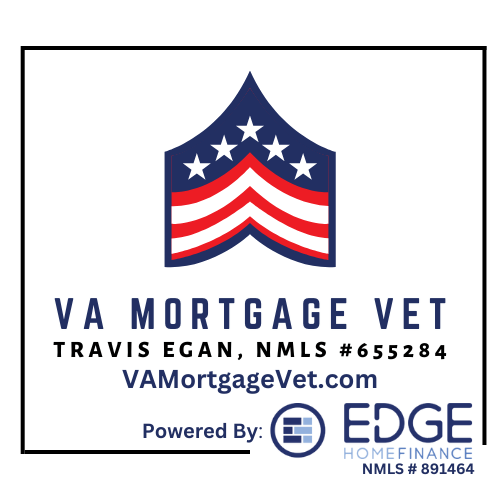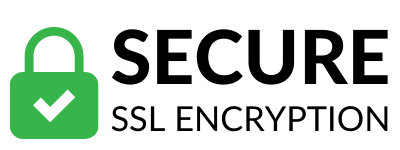
I Hate When Videos Play as Soon as the Page Loads...
CLICK the Video Below for a Welcome Message!

How to Save Money on Closing Costs with a VA Home Loan
Buying a home is a significant financial commitment, and while VA home loans offer numerous benefits like no down payment and no private mortgage insurance (PMI), closing costs can still add up. Fortunately, there are several strategies you can use to save money on closing costs when using a VA home loan. Here’s how to make the most of your VA loan benefits and keep your out-of-pocket expenses to a minimum.
“If you don't know where you are going, you'll end up someplace else.” - Yogi Berra, an American professional baseball catcher, manager, and coach
1. Understand What Closing Costs Entail
Closing costs include a variety of fees and expenses associated with finalizing a mortgage. Common closing costs include:
Loan origination fees
Appraisal fees
Title insurance
Attorney fees
Home inspection fees
Recording fees
Transfer taxes
Deed stamps
Understanding these costs is the first step in finding ways to reduce them.
2. Take Advantage of VA Loan Benefits
One of the primary advantages of VA loans is that they limit the types of fees and costs that veterans can be charged. For example, VA loans prohibit certain fees, such as:
Brokerage fees
Prepayment penalties
Escrow fees
Additionally, the VA limits the amount that lenders can charge for origination fees to no more than 1% of the loan amount. This helps keep your costs in check.
3. Negotiate with the Seller
In a real estate transaction, it’s common to negotiate with the seller to cover some or all of the closing costs. This is known as seller concessions. Sellers may agree to pay for various closing costs as part of the purchase agreement, especially if the market is competitive or if they are eager to sell. Make sure to discuss this option with your real estate agent, who can help negotiate these terms.
4. Shop Around for Services
Not all closing costs are set in stone. Services like title insurance, home inspections, and attorney fees can vary significantly between providers. Take the time to shop around and compare prices for these services. By choosing more affordable options, you can reduce your overall closing costs.
5. Use a VA Loan with No Closing Costs
Some lenders offer VA loans with no closing costs. While these loans might come with a slightly higher interest rate, they can eliminate out-of-pocket expenses at closing. This can be a good option if you’re short on cash upfront but still want to take advantage of a VA loan.
6. Ask About Lender Credits
Lender credits are another way to reduce closing costs. With lender credits, the lender agrees to cover some or all of your closing costs in exchange for a higher interest rate. This can be beneficial if you plan to stay in your home for a shorter period, as the initial savings can outweigh the slightly higher monthly payments.
7. Utilize Your VA Funding Fee Exemption
The VA funding fee is a one-time fee required for all VA loans, which helps keep the program running. However, veterans with service-connected disabilities are exempt from paying this fee. If you qualify for this exemption, it can save you a significant amount of money. Make sure to confirm your exemption status and provide the necessary documentation to your lender.
8. Explore State and Local Assistance Programs
Many states and local governments offer assistance programs for homebuyers, including those using VA loans. These programs can provide grants or low-interest loans to help cover closing costs. Research what programs are available in your area and see if you qualify.
9. Work with an experienced VA loan specialist.
Finally, working with a lender who specializes in VA loans can make a big difference. Veteran Mortgage Advisors are the experts in VA home loan programs. These specialists are familiar with the intricacies of VA loans and can help you navigate the process efficiently. They can also advise you on the best strategies to minimize your closing costs.
Conclusion
Saving money on closing costs with a VA home loan is possible with the right strategies and knowledge. By understanding your VA loan benefits, negotiating with the seller, shopping around for services, and exploring various cost-saving options, you can reduce your out-of-pocket expenses and make homeownership more affordable. Take advantage of these tips and work with experienced professionals to ensure you get the best deal possible.
FAQs (Frequently Asked Questions)
What are the typical closing costs for a VA home loan?
Typical closing costs for a VA home loan can range from 2% to 6% of the loan amount, including fees for loan origination, appraisal, title insurance, and more. This amount will vary drastically depending on where you purchase your home.
Can the seller pay for closing costs on a VA loan?
Yes, sellers can pay for some or all of the closing costs on a VA loan. This is negotiable and can be included in the purchase agreement.
What is the VA funding fee, and who is exempt?
The VA funding fee is a one-time fee that helps fund the VA loan program. Veterans with service-connected disabilities are exempt from paying this fee.
Can I roll closing costs into my VA loan?
No, you can't roll closing costs into your VA loan amount. As mentioned earlier, you can ask the seller to pay your closing costs, but it will likely result in a higher purchase price and higher monthly payments.
Are there assistance programs for VA loan closing costs?
Yes, many states and local governments offer assistance programs that provide grants or low-interest loans to help cover closing costs for homebuyers, including those using VA loans.
For further advice on how to make sure your VA home loan process goes as fast and smoothly as possible, please read our article titled: How to Leverage Your VA Home Loan Benefits


Travis Egan
NMLS # 655284
Edge Home Finance
NMLS # 891464
1267 Eagles View Dr, Clarksville TN 37040
Travis Egan, VA Mortgage Vet
NMLS # 655284
1267 Eagles View Dr
Clarksville, TN 37040
(931) 208-6280
WE DON'T SLEEP UNTIL
THE MISSION IS COMPLETE

Edge Home Finance
NMLS# 891464
5868 Baker Road
Minnetonka, MN 55345
(763) 219-8484
Edge Home Finance is an Equal Housing Lender. We fully comply with the Equal Credit Opportunity Act (ECOA) and all other Federal regulations. All applicants applying for credit from Edge Home Finance will never be discouraged on the basis of race, color, religion, national origin, sex, military status, marital status, age, or because you get public assistance. All information we request is voluntary, and will be kept confidential. For more information on the ECOA, please visit:
http://www.ftc.gov/bcp/conline/pubs/credit/ecoa.shtm

© Copyright 2024 | Edge Home Finance | All rights reserved.
© Copyright 2024 | Edge Home Finance | All rights reserved.
